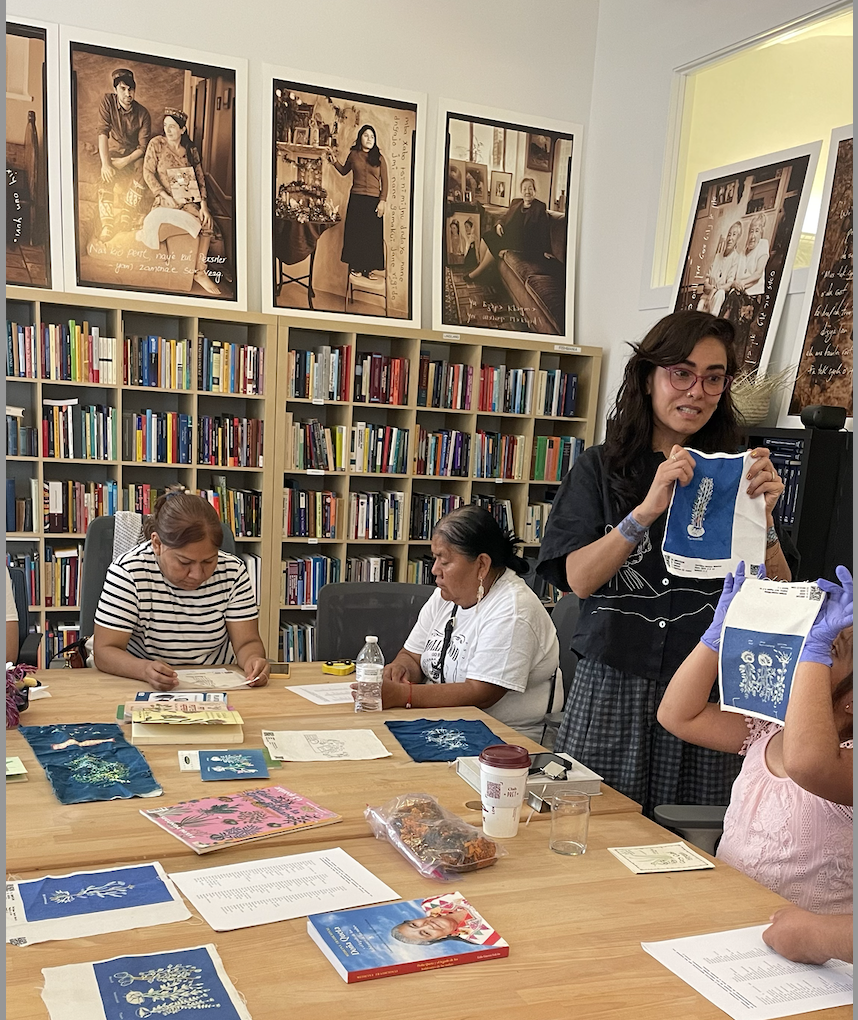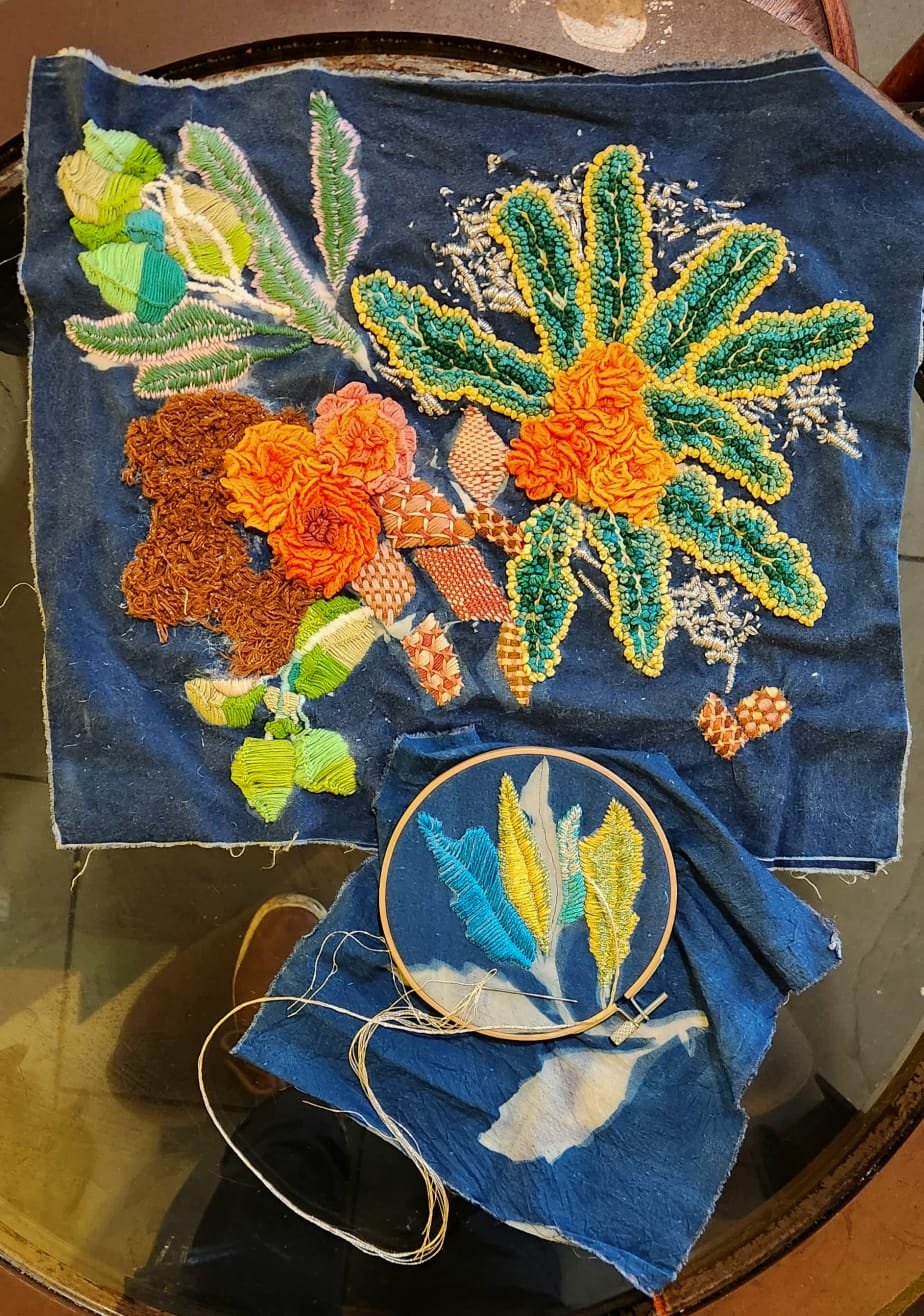Amplifying Indigenous and Endangered Voices: The Critical Role of Collaboration for the Talk of the Town Program
Many people often asked me about what type of cultural work I do. In the spirit of entertaining that question, I am happy to share the work I did last year with El Museo del Barrio on a community engagement program with the support of the National Endowment of the Arts and the Avery Foundation. I had the opportunity to be led by Rodrigo Moura, Chief Curator and Alexia Arrizurieta, Curatorial Assistant of El Museo del Barrio and I am grateful to them for the amazing opportunity to work together along with a distinguished group of other advisors and subject matter professionals to take all of this ideas to reality.
El Museo del Barrio’s Talk of the Town Artist-in-Residence: Engaging with Indigenous and Endangered language communities was a groundbreaking program designed to amplify the voices of immigrant New Yorkers who speak indigenous and endangered languages. Carishina’s consultancy services in project management and cultural programming was instrumental in navigating every phase of the project.
Carishina’s Expertise: A Pillar of the Project
From the inception to the final reporting phase, Carishina provided essential subject matter expertise to ensure the project met its goals efficiently and thoughtfully. Their contributions spanned the following critical areas:
1. Planning and Timeline Development
Carishina’s project management acumen helped El Museo craft a clear roadmap for Talk of the Town. This included designing a timeline that balanced the demands of selecting artistic proposals while contacting and working with a panel of distinguished artists and linguists, selecting community-based organizations (CBOs), and coordinating multiple stakeholders to create a seamless workflow.
2. Open Call and Recruitment
With a nuanced understanding of outreach strategies, Carishina guided the development of an open call that yielded over 40 artistic proposals. Their insight ensured a fair and transparent selection process, engaging a diverse pool of artists whose practices aligned with the program’s mission. From these activities the artist awarded were:
Raul Ayala
Radhiyah Ayobami
Cinthya Santos Briones
3. Stakeholder Engagement
Carishina played a vital role in fostering partnerships with CBOs like the Endangered Language Alliance and African Services Committee. Their leadership ensured that these organizations were aligned with the project’s vision and equipped to host artists effectively, despite initial funding and resource challenges.
4. Activation and Event Planning
The program culminated in a public event on November 7, 2024, where the outcomes of the residencies were shared with the community. Carishina managed the logistics of this presentation, ensuring that it showcased the residency results while fostering dialogue between participants, artists, and attendees.
5. Evaluation and Reporting
For the evaluation portion of the project, Carishina partnered with Kera Collective, whose systematic approach to evaluation ensured that all aspects of the program were thoroughly documented. Their efforts included tracking participation metrics, gathering feedback from stakeholders, and crafting a comprehensive final report that highlighted the program’s achievements and areas for growth.
Key Accomplishments Enabled by Carishina
• Cultural Preservation: Carishina’s guidance helped the program amplify the narratives of immigrant New Yorkers and preserve linguistic diversity.
• Community Engagement: Their expertise ensured successful outreach to underserved populations and fostered strong partnerships with local CBOs.
• Program Efficiency: Through streamlined planning and management, Carishina optimized timelines, operational workflows, and event execution.
The Lasting Impact
The collaboration with Carishina exemplified the importance of working with subject matter experts who understand the intricacies of cultural programming. Their contributions not only ensured the program’s success but also laid the groundwork for replicable models that El Museo can apply to future initiatives.
By amplifying the voices of underserved communities and fostering meaningful connections through art, Talk of the Town underscores the transformative power of partnerships like that with Carishina. Together, they created a program that honored heritage, fostered inclusivity, and ensured lasting cultural impact. For more on this project, visit El Museo del Barrio.
In the cross-functionality of this experience I had the privilege and pleasure to work with the following people I would like to acknowledge and thank:
El Museo del Barrio
Helena Vidal
Adriana Morán Garcia
Antonieta Landa
Evelyn Rivera
Giovanni Vidal
Carlos Galvez
Susanna Temkin
Pamela Hernández Hower
Artists
Cristina Cortés- Director Coop Danza
Leenda Bonilla
Juanita Lanzo
Humanitarian Professionals
Deborah Denis
Ugochi Obidiegwu
African Services Committee
Emily Goldberg-Hall
Hassanatou Barry
Nathalie Weeks
Malet Maru
Stefanie Zavala
Indigenous Language Alliance
Daniel Kaufman
Ibrahima Traore
World’s Borough Bookshop
Adrian Cepeda
Ecuadorian Civic Committee of New York
Oswaldo Guzman
NYC Mayor’s Office of Immigrant Affairs
Eileen Reyes Arias
Shaina Coronel













